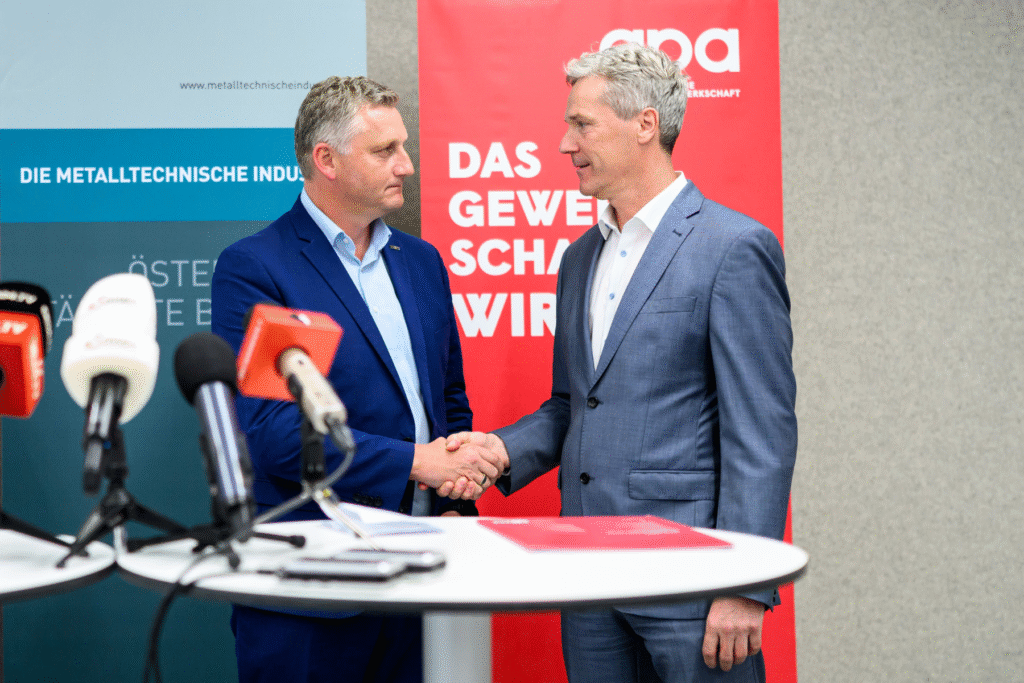
At this year’s metalworkers’ wage round, negotiators reached an agreement on a new collective agreement for around 190,000 employees on Monday afternoon after only a few hours. Starting November 1, 2025, actual wages and salaries will rise by 1.41 percent, and minimum pay will increase by 2 percent. From November 1, 2026, actual wages and salaries will rise by 1.9 percent, and collectively agreed minimum pay will increase by 2.1 percent. One-time payments are also included.
PRO-GE federal chairman Reinhold Binder described the result as a “crisis settlement for a limited time” that “does not fully cover rolling inflation.” Given high inflation and energy costs, he said it was important to move forward “with reason and security into the future.” Rolling inflation from September 2024 to August 2025, which served as the basis for negotiations, was 2.8 percent.
For Christian Knill, chairman of the metal technology industry, the agreement is one that “for the first time in years moves back toward improving competitiveness of businesses.” “We remain significantly below European inflation with the sustainable portion,” Knill emphasized. He expressed hope that Austria’s metal industry would not continue to fall behind in European competition. WKÖ president Harald Mahrer said the “moderate wage adjustment of 1.4 percent and one-time payments for 2025 as well as 1.9 percent from November 1, 2026, now create urgently needed planning security and relief for both companies and employees.”
Two-Year Deal With One-Time Payments
The two-year agreement also provides that employees between November 2025 and June 2026 will receive either two times two additional days off or two one-time payments of €500 each to maintain purchasing power. The specific arrangement is to be decided at company level through social partnership. Apprentice pay will also increase by 2 percent from November 1, 2025, with a one-time payment of €250. From November 1, 2026, apprentice pay will rise by 2.1 percent.
The Federation of Austrian Industries (IV), which does not participate in the negotiations, praised the swift compromise. “The negotiators quickly reached a workable compromise in a difficult situation, which takes into account the challenges for companies and creates predictability,” said IV secretary general Christoph Neumayer on Monday evening.
On Monday, collective bargaining also began for railway employees. Unlike in the metal industry, no agreement has yet been reached there.

